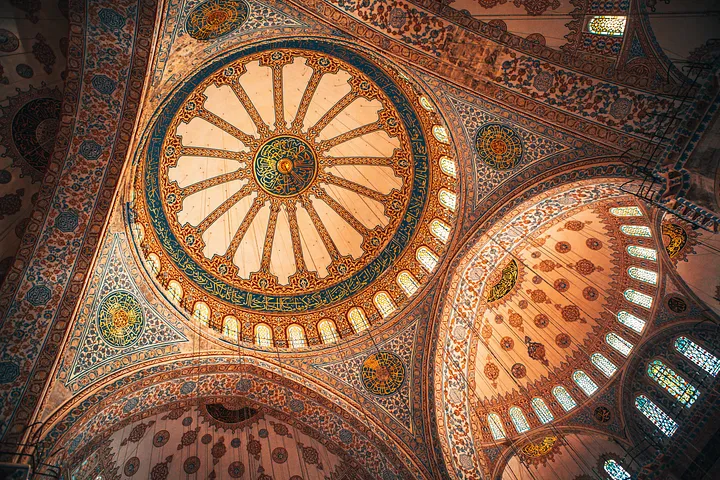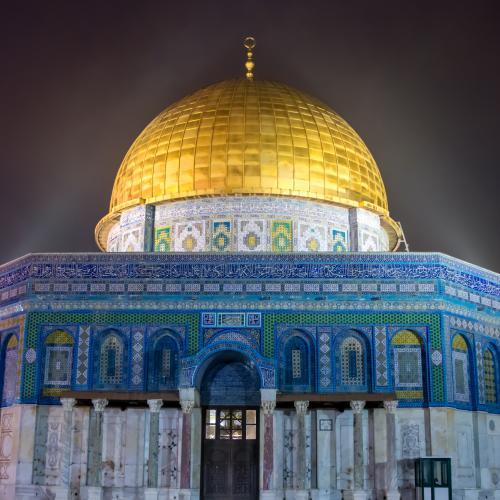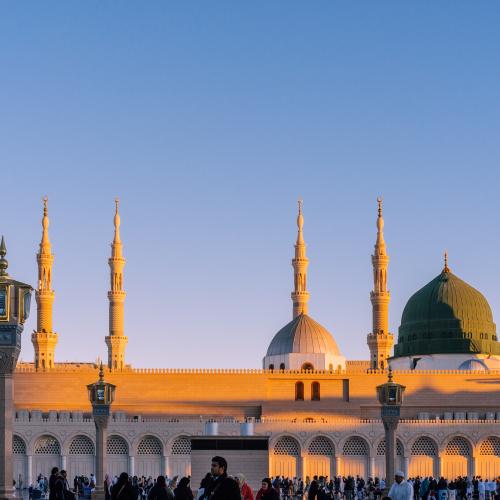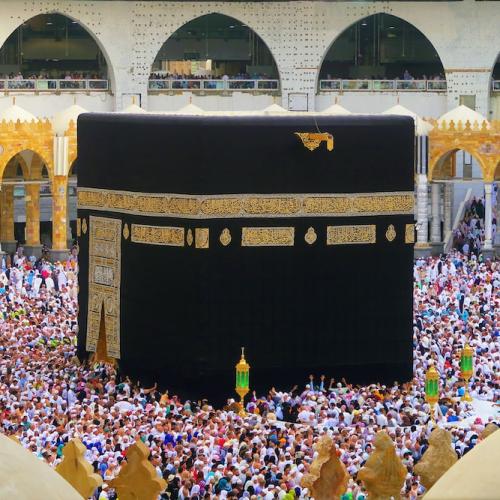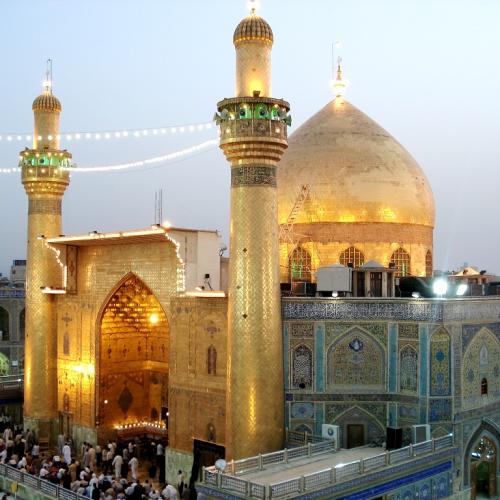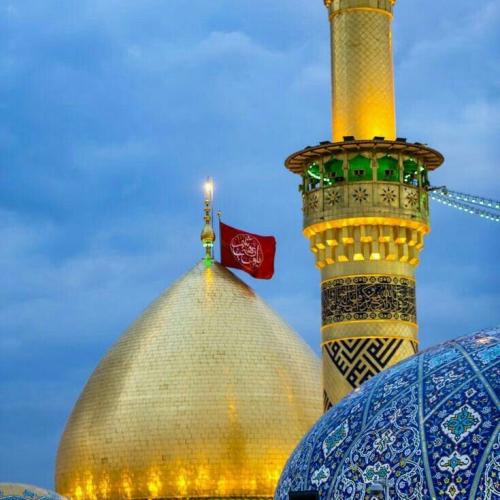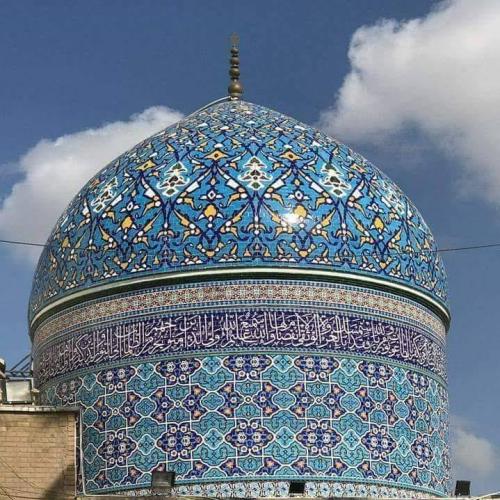There’s a common narrative among many westerners of how Islam itself in its early days was a coloniser of many peoples and territories. How during its conquests of the 7th and 8th centuries, Islam suppressed the populations and forced upon them a new faith and language, echoing the narrative that its expansionism was strictly conducted by the sword. What was this earth-moving proof that had convinced those who hold this flawed and over-simplified view so deeply?
Firstly, let’s quickly summarise the zeitgeist of the times from a political perspective and then assess what this geographic expansion was and when it all happened. During the life of the Prophet Muhammad, peace be upon him, Western Asia was dominated by two empires that were in a bloody and violent war that had lasted for over eight decades. These two empires were the Byzantine and Sassanian empires. In the Arabian Peninsula, a region that wasn’t included in either’s domain, both intertribal aggression and constant raids were also concurrently rampant. When the fledgling faith became threatened in Medina by its various enemies in the early 7th century, the necessity for defence and thereafter the protection of its believers had to take priority for the Muslim regional minority.
With the Battle of the Trench, the failed attack on Medina by the Quraysh clan and their allies against the Muslims, thus began the eventual conquest of Islam overtaking the entire Arabian Peninsula during the lifetime of the Prophet, peace be upon him, followed by the Rashidun Caliphate. This saw the expansion span from the eastern borders of Persia, Turkey to the north, and Libya to the west. Finally, during the Umayyad Caliphate came the crossing of Islam into Afghanistan and the Indian subcontinent, into the northwestern African lands of the Maghreb, and into the Iberian Peninsula. From 622 to 750 CE, over 120 years, Islam expanded rapidly across three continents.
Now, with this background, we can indulge in the confirmation or repudiation of the element of colonialism in Islam’s conquests. But one more quick digression: let’s define colonialism in simple terms. Colonialism is when one more powerful people invades and occupies another people, usurps their rights and natural resources for the sole purpose of self-interest, like what the British, French, and Spanish empires did to the world from the 15th to the 20th century, as well as what Israel is currently doing in Palestine during the supposedly civilised 20th century.
Beyond the facts, this foundation is how we must establish our conclusions and how we must compare the behaviour of Islam towards those conquered peoples relative to other nations of the time. We can’t expect Islam to behave as per 21st-century standards or even the 20th century. But even we should question that: was Islam actually more humane than even the colonialists of the 20th century?
One would note, when looking at the Islamic expansion and the short duration it took, the accomplishments suggest a speed of success unheard of. It was true that both the Byzantine and Sassanian Empires had fought their way to their eventual collapse over the decades, but still, the number of the Muslims paled in comparison. There are significant factors that played into this dynamic. These empires had shown extreme oppression towards the inhabitants of those occupied regions, while Islam exhibited a tolerance and relatively fair approach to those of other faiths. In general, in most of the conquered nations, the local inhabitants offered no resistance to the invading Muslims as they had little or nothing to lose by the changing of the guard. In some cases, such as in the Levant, Mesopotamia, and Egypt, Islam was a liberator and hence openly welcomed such was the case in the opening of Jerusalem and Jews being allowed to return.
One aspect that differentiated Islamic forces from other preceding victorious armies was that Islam had embedded within its belief system the rules of engagement during warfare, with humanitarian tenets that understood there was to be the protection of women and children and to respect the property and symbols of other faiths. Yes, there were occasions when individuals broke such tenets, but these should be regarded as exceptions.
Was spread by the sword?
This is a narrative originating at the time of the Crusades when the sole ambition was to discredit Islam and give it a barbaric and savage reputation. A common misrepresentation of this narrative was the supposed forced conversions of conquered peoples, whereas the facts suggest that even prior to any imminent military engagement, the Muslim generals would offer the options of conversion to Islam, acceptance of dhimmi status (meaning the payment of an annual jizya tax), or trying their chances at armed conflict. Even upon Muslim victory, the first two options remained available.
The widespread and well-documented dhimmi system that dealt with non-Muslim citizens is proof that no forced conversions took place. There was a structure in place that allowed for religious continuity while also protecting rights with a structure that maintained the retention of physical land and property. Property records show that in the varying lands conquered in the previous Byzantine and Sassanian Empires, Muslims were a small minority during the early Islamic reign, ranging between 10 to 20% of the population up until a century or two after the initial conquest. In certain cases, such as in Iran and Egypt, Muslims as a majority of the population only came into being well into the 9th century. How can that possibly be forced conversion?
Another powerful counterargument for the case against Islamic colonialism is the fact that there was never really any extraction of resources out of the conquered lands and shipped off to Mecca back in Arabia. In actuality, trade and commerce throughout the new Islamic territories blossomed further during Islam’s reign and created a series of powerful cosmopolitan cities across the empire that would eventually become some of the greatest and brightest cities on the planet within the next two centuries: Baghdad, Damascus, Cairo, and Cordoba. Meanwhile, Mecca and Medina, the supposed colonial centres, were humble in their expansion and prosperity for the next millennium and beyond.
A question that can always be asked to further prove this point: would the British ever have moved their capital from London to Delhi?
To exhibit the difference, the capital of the Muslim empire left the Arabian Peninsula with the coming of the Umayyad Caliphate, never to return. Such a decision only reflects that the Islamic empire wasn’t about the benefit of one people, nation, or territory over another, but that a new set of groups of united people, inclusive of those conquered, were now a new nation that had much larger collective aspirations.
One would think that the Islamisation of faith would result in the Arabisation of language, but the reality was the opposite. As the Islamisation of the populations took significant time to materialise, learning the language of the faith, Arabic, was never forced onto others. The fast-paced assimilation of Arabic was principally due to the fact that it was the primary language of trade, governance, and law within the Islamic empires, as well as being a language familiar to the populations of the Levant and Mesopotamia, who were mainly Aramaic speakers.
Arabisation wasn’t about the Muslim faith but was about integrating within a civilisation that was booming not just back in Arabia but everywhere. It became the common language for non-Arabs and non-Muslims to prosper. During the subsequent golden age, thinkers and scholars from across the empire wrote and relayed in Arabic, much in the same way that the English language spread all over the world during the 20th century due to globalisation and technology. Arabic achieved widespread acceptance for the sake of the transfer of knowledge and in aspiring to prosperity.
One exception to this fluid expansion of both the faith and the language would be the conquests in North Africa during the time of the Umayyad Caliphate. When Islam initially confronted the Amazigh tribes and conquered the remnant Byzantine strongholds, the acceptance of the faith by the indigenous people went as per the conquest of earlier territories. But this soon changed with the Umayyad leadership alienating the locals through very heavy taxation that was unfair and unequal to the taxes levied on Arab settlers, resulting in many revolts and counter-revolts that never really reconciled the state of the conquered territory. This led to a sort of autonomy of this new Muslim region that would see a strong commitment to the faith but with a reduced version of Arabisation, as well as a resistance for the integration of Arab-centric culture while retaining vast parts of the Amazigh identity that remain strong even today.

